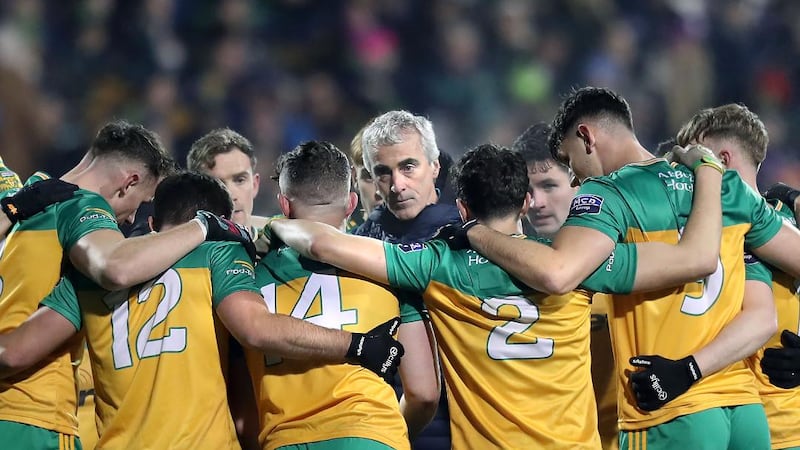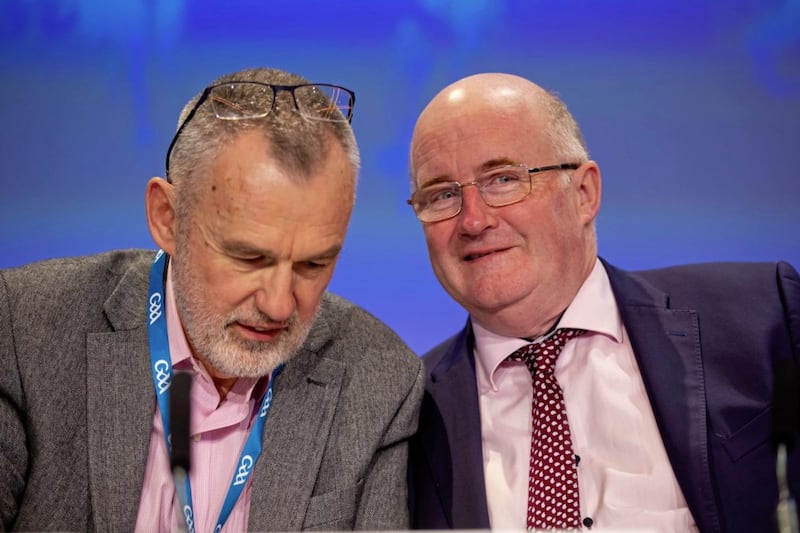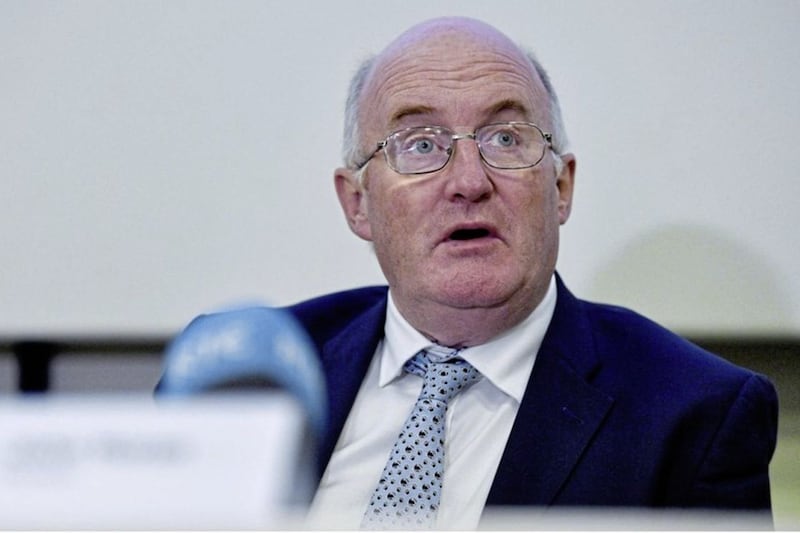THE GAA’s new president and director general both got a nice welcome to their jobs with the leaking of a report commissioned by Aogán Ó Fearghail.
Entitled ‘Towards 2034 – the 150th anniversary of the GAA’ the report aims to be a discussion-stimulating analysis of how the Association might look in the future and give some prior warning or consideration to the challenges which lie ahead.
It has not been formally released yet, suggesting a degree of apprehension of releasing it into the turbulent political waters the GAA currently finds itself in.
Among the report’s suggestions are changes to the current expenses system to allow set payments to inter-county players.
The report covered many areas but it is not surprising for anyone who follows GAA, that this particular point would be seized upon and highlighted.
The biggest issue within the GAA is the apparent divide between club and county.
The elite Super 8s, TV deals, commercial revenue and fixture scheduling of the county game, appear completely weighted to ensuring a thriving top level game which seems at odds with emphasis of volunteerism and amateurism in the Association’s core mission statement, a fact highlighted in the report.
Many take such things as polar opposites from the club game and certainly in many instances there is an uneasy peace between the two which, over the past year or two, appears to be reaching breaking point.
The suggestion then of set payment to inter-county players is hardly coming at an ideal time.
The devil, as always, is in the detail. As far as I know, the payments would, in essence, take the place of the travel expenses that players currently get and extend to gear or nutrition expenses.
Instead of handing mileage forms for sanctioning by the financial team (often a source of some bad blood due to discrepancies in amounts expected and received) a player would get a set monthly or weekly payment.
All squad members would get it. In some squads, and certainly in my time, just the driver received these expenses but I am aware of other squads where all players receive travelling expenses whether driving or not.
The issue is that such a move would leave you on a slippery slope towards pay-for-play.
While on the face of it some modernisation or simplification of the expenses system may be required, regular set payments across county squads is surely blurring that line to pay-for-play a bit too much.
It is hard to see rank-and-file Gaels being comfortable at the thought of players receiving set regular payments and, from my own experience, I really do not believe that players are keen for it.
In terms of getting the financial affairs in order, I would think something like a spending cap across all teams needs consideration.
The inequality between the money some teams can generate compared to others is not just purely down to the brilliance of the county board as Dublin would like us to believe.
There are very obvious socio-economic factors that come to bear in this area for all counties. The fact that money can significantly impact success within sport much more so than in previous eras means it is a variable where control should be exerted.
More importantly for me, if allowed go unchecked, the county game has the potential to suck up a huge proportion of our games’ financial resources.
County boards have the ability to make money from large inter-county gates, sponsorship, TV deals and commercial partnerships.
Such income streams are not open to clubs who remain stuck with their local resources, be it membership payments, club lotto or draws and fundraisers.
The fact that clubs who are so stretched financially are being asked to make notable payments to their county boards is inexcusable if the county team is soaking up hundreds of thousands of pounds with no upper limits at all in an unwinnable game of ‘keeping up with the Joneses’.
In the six years since Dublin’s transformative All-Ireland win in 2011, the expenses of inter-county teams has gone up 36.7 per cent.
In an era of general restriction in expenditure across most sectors this is difficult to rationalise.
Some counties certainly are more at fault than others but surely a properly audited and capped expense system, would prevent this largesse at inter-county level, create a potentially more competitive playing field and, most importantly, mean more for the clubs.
***********************************************************************************************************************************************************************************************************************************************************************************************************************************************
THIS Friday evening, Tyrone GAA is holding its ‘Credo Awards’, introduced last year by former chairperson Roisin Jordan.
Specially commissioned gold and silver pins will be presented to volunteers, nominated by their clubs, who have given over 50 or 25 years of service.
Notably, it will be new GAA president John Horan who is making the presentations. Credo means to believe and these peoples’ voluntary commitment exemplifies their deep rooted belief in the Association, its mission and its ability to be a transformative power for good in our communities.
All of us could identify members who have given this type of service. They are genuine local pillars of the community on whom so much depends. Often these people are notable for their sheer humbleness and quiet ways of getting on with what needs to be done.
I am a huge believer in the county game. It brings a prestige to our games and represents the elite level of our sports inspiring the dreams of our young players and bringing huge entertainment and joy with it.
The challenge is, in the push for success at the top level, that the core values of our Association, which people like the Credo Award winners believe in, are not eroded away. I firmly believe that the two are not mutually exclusive but we live in times of significant change and pressures which are not always working in the same direction.








